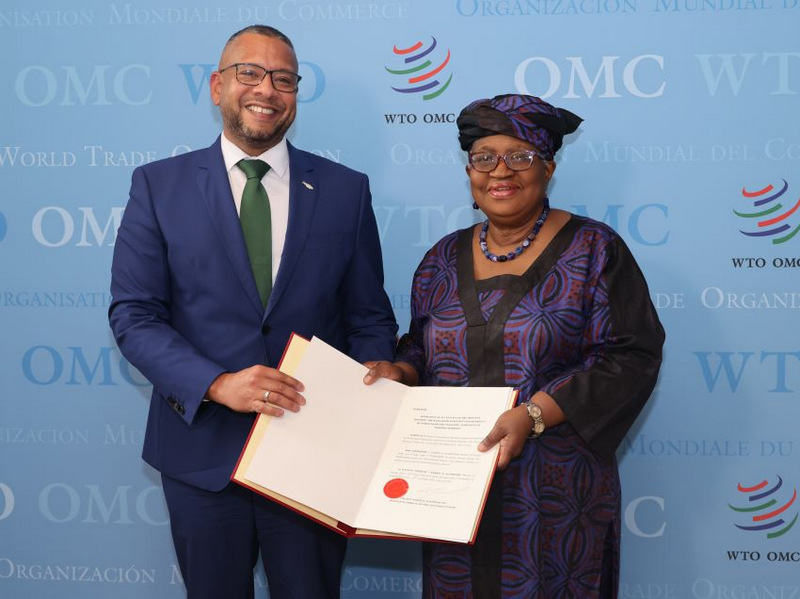BY SHEENA FORDE-CRAIGG | FEB 14, 2024
Barbados’ Ambassador to the United Nations, the World Trade Organization (WTO) and other international organisations, Matthew Wilson presents the instrument of ratification for the WTO Fisheries Subsidies Agreement, to WTO Director General, Dr. Ngozi Okonjo-Iweala, today. (World Trade Organization)
Barbados has formally submitted its instrument of ratification accepting the World Trade Organization’s (WTO) Fisheries Subsidies Agreement, to the WTO Director General, Dr. Ngozi Okonjo-Iweala.
Barbados’ Ambassador to the United Nations, the WTO and other international organisations, Matthew Wilson, presented the ratification instrument today in Geneva, Switzerland.
The instrument was endorsed by the Cabinet of Barbados after extensive national consultations with the fishing communities and other stakeholders to better understand their needs and realities.
“This Agreement confirms that the WTO can produce strong legal outcomes that can deliver for the sustainability and developmental priorities of small island states like Barbados. It sends a signal that illegal, unreported, and unregulated fishing will not be tolerated,” Ambassador Wilson stated.
The Fisheries Subsidies Agreement, which Barbados ratified, focuses on addressing illegal, unreported, and unregulated fishing activity. The ongoing second part of the negotiations seeks to discipline subsidies that cause overfishing and over capacity, and which have had negative impacts on global fish stocks.
Mr. Wilson noted that Barbados, like many other small island developing states, and small, vulnerable economies, had been intimately involved in the fisheries subsidies negotiations since they were launched formally in 2005.
“As an island state that depends on fisheries for food security, jobs, and livelihoods, Barbados recognised that its maritime space required both protection and sustainable management as it diversified its economy,” he stated.
He said one of the most significant contributions that Barbados and other small islands have made in the negotiations is to introduce into the mandate, language on special and differential treatment that focuses on livelihoods, poverty alleviation, and food security.
Ambassador Wilson added that this also reflects the importance of any negotiation on fisheries needing to be more than just trade rules but must ultimately be about protecting vulnerable communities.




